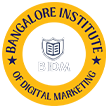
Before deciding which digital marketing course is best for you, it’s essential to understand the broader landscape: what digital marketing entails today, how the industry is evolving, and what learners should expect from a quality course.
Table of Contents
What “digital marketing” covers today
Digital marketing is not a single skill — it’s a spectrum of specializations and tactics. A good digital marketing program typically covers (but isn’t limited to):
- Search engine optimization (SEO)
- Pay-per-click (PPC) advertising / Google Ads / Bing Ads
- Social media marketing (organic + paid)
- Content marketing
- Email marketing & automation
- Web analytics (Google Analytics, etc.)
- Conversion rate optimization (CRO)
- Affiliate marketing
- Mobile/digital advertising (app marketing, display, programmatic)
- Local SEO / location-based marketing
- E-commerce marketing
- Marketing strategy, planning, and dashboards
Because the field is dynamic (search engines evolve, social platforms change their ad rules, data privacy regulations shift), a good digital marketing course must be up to date, hands-on, and show real-world use cases.

Why choosing the right course matters
Picking a subpar course is more than just a waste of money or time. Inadequate training can lead to:
- Learning outdated tactics that no longer work
- Gaps in key skills (for example, neglecting analytics or CRO)
- Lack of confidence in applying what you learn
- Poor results when you attempt to market your business
- Less credibility when you present your skills to clients or employers
By contrast, a well-designed course can:
- Help you gain a holistic view of digital marketing
- Provide actionable strategies and blueprints
- Include practical assignments, templates, or real campaigns
- Give you recognized credentials (certificates)
- Connect you with a network of instructors, alumni, or communities
- Offer updates over time as digital marketing evolves
So when someone searches “which digital marketing course is best,” the answer depends heavily on your background, goals, budget, and preferred learning format.
Key Criteria to Evaluate a Digital Marketing Course
To decide which digital marketing course is best, here are the criteria you should use to compare options. Think of this as your evaluation checklist.
1. Curriculum breadth & depth
- Does the course cover all major domains (SEO, PPC, social media, analytics, content)?
- Does it go beyond superficial theory and dive deep enough into advanced strategies?
- Does it include emerging topics (e.g. AI in marketing, voice search, privacy changes)?
- Are case studies or real-world campaign breakdowns included?
A course that just superficially introduces each topic may not equip you to execute campaigns later.
2. Hands-on learning & assignments
- Does it include practical assignments, not just quizzes?
- Are there real campaign simulations or live projects?
- Do you get tool-based walkthroughs (e.g. using Google Analytics, ad platforms, SEO audit tools)?
- Are templates, guides, or blueprints provided so you can replicate what’s taught?
Theory is necessary, but ability to implement is what employers or clients care about.
3. Instructor credibility and support
- Do instructors have verifiable experience in the industry (not just academic credentials)?
- Are there opportunities to ask questions (live sessions, office hours, forums)?
- Is there mentorship or guidance on applying the lessons?
When instructors share their long-term experience and show results they achieved, that builds trust.
4. Course updates and relevance
- When was the course last updated? Does it adapt to the latest changes (Google algorithm, ad policy, platform updates)?
- Do students get access to updates as the industry evolves?
Courses that aren’t regularly updated risk becoming obsolete quickly.
5. Certification and recognition
- Does the course provide a certificate upon completion?
- Is the certificate from a recognized platform or organization that has weight in the industry?
- Do they showcase alumni success (testimonials, job placements, client stories)?
A certificate alone doesn’t guarantee quality — but being recognized by employers, agencies, or reputable institutions helps.
6. Peer feedback & reputation
- What do past students say in reviews?
- Do you see successes (e.g. “I got a job / landed a client after this course”)?
- Is the course endorsed by credible marketing influencers or agencies?
Social proof from real learners is a strong signal.
7. Pricing, payment flexibility, and guarantees
- Is the price reasonable given what is offered (content, mentorship, lifetime access)?
- Are there payment plans or installments?
- Is there a money-back guarantee or trial period?
Sometimes, the best course may be just beyond your budget — but payment flexibility can make it accessible.
8. Community and networking
- Is there a students’ community (Slack, Discord, private forum) for peer learning?
- Are you connected to alumni networks, job boards, or internship programs?
- Do course creators host webinars, live debates, or summits for students?
Learning in isolation is harder; a supportive community can accelerate progress.
9. Job or freelance readiness
- Does the course guide you on building a portfolio, case studies, or client acquisition?
- Is there career coaching, resume review, or mock interviews?
- Are internships or agency tie-ups offered?
If your goal is to get hired or start freelancing, these add-on supports matter.
10. Transparency & trustworthiness
- Is the course honest about what it will deliver (no overpromises)?
- Are there clear terms and conditions, refund policy, privacy policies?
- Are affiliate links disclosed?
You want the confidence that you aren’t being sold hype but real value.
Top Digital Marketing Courses Worth Considering
Below are some high-quality, well-known digital marketing courses (free and paid) that many learners and professionals consider. Use these as benchmarks while you compare.
Google Digital Garage (Fundamentals of Digital Marketing)
This is a free course offered by Google, covering core digital marketing modules across 26 modules. A good foundation for beginners.
Google Digital Marketing & E-commerce Professional Certificate (Coursera / Google)
This is a more advanced, structured certificate pathway, endorsed by Google. It includes modules on SEO, advertising, e-commerce, analytics, etc.
Reliablesoft – Complete SEO Course
While this is focused on SEO, it has depth and is often recommended among Google SEO training options.
UC Davis – SEO Fundamentals / SEO Specialization (Coursera)
A university-backed specialization that gives academic depth in SEO.
Semrush Academy
Offers the benefit of tool-based lessons and certifications. Many marketers value these because they tie theory to actionable work.
Moz SEO Training Course
Though more expensive, this course is respected for its focus on advanced SEO strategy, reputation, and tool integration.
These are mostly SEO or digital marketing foundations; full-stack digital marketing courses often combine multiple domains (paid ads, social, email, etc.). Always check the syllabus.
How to Choose the Best Course for You
“Best” is relative. What’s best for one person may not be best for another. Here are decision paths based on your situation:
If you’re a complete beginner
- Start with free or low-cost foundational courses (such as Google Digital Garage) to test your interest.
- Ensure the course gives you a holistic overview — later you can specialize.
- Choose courses with simple assignments to gradually build confidence.
- Prioritize courses that teach how to learn — that is, how to stay updated in a changing field.
If you have some marketing or business background
- Look for intermediate or advanced courses that deepen your skills (e.g. advanced analytics, multi-channel attribution).
- Choose ones with live projects or mentorship.
- Pick courses that allow you to build a portfolio of work.
- Choose instructors who are practitioners (agencies, marketers who manage real budgets).
If your goal is employment or freelancing
- Focus on courses with job-readiness — portfolio creation, mock interviews, resume support, sales of services.
- Prefer courses recognized by agencies or companies.
- Community and alumni connections matter — networking helps you get your first clients or job.
- Look for courses that give you real experience working on campaigns (even if small budgets).
If your constraint is time or money
- Choose a course with flexible pacing, on-demand modules you can take when free.
- Payment plans or installments help.
- Focus on courses that emphasize quality over quantity — better to fully master a few modules than superficially cover many.
- Ensure the course gives you access long term (not just while you’re enrolled).
If you’re focused on a niche (e.g. e-commerce, local business, B2B)
- Ensure the course has modules tailored to your niche (e-commerce marketing, marketplace ads, local SEO).
- Check whether case studies in your niche are included.
- See whether there are bonus modules or guest lectures focused on your domain.
A Walkthrough: How I Would Evaluate a Hypothetical Course
Let me demonstrate how I would test a prospective digital marketing course using the criteria above.
Suppose I find a course called “ProMarketer Mastery”. I will:
- Review the curriculum: Does it cover SEO, PPC, email, social, analytics, and so on?
- Check how recent the content is: When was the last update? Are Google Ads and algorithm changes reflected?
- Ask for a syllabus or trial module: Does it include case studies or assignments?
- Investigate instructors: Are they known in industry? Do they share real campaign outcomes?
- Look for student reviews: Do students mention receiving jobs, paying clients, or seeing results?
- Check for certificate credibility: Is the certification recognized?
- Evaluate the community: Do they have a forum, Slack, or group where learners help each other?
- Assess cost vs value: Is price justified by depth, support, updates, and extras?
- Determine job readiness: Do they help students build portfolios or connect to agencies?
- Decide trustworthiness: Are refund policies clear, are there overpromises, and is the marketing transparent?
If “ProMarketer Mastery” scores well across most criteria, I’d consider it among the top options.
Recommended Courses by Use Case
Below is a hypothetical (but realistic) shortlist of courses you could pick depending on your goals and constraints. Use this as a menu to match your needs.
| Use case | Recommended type of course | What to look out for |
|---|---|---|
| Full-stack marketing generalist | A comprehensive master’s digital marketing program | Covers all domains, projects, mentorship |
| Specialist (SEO, PPC, Social) | Deep specialist tracks or bundle | Focus on one area, but integrate learning with other domains |
| Freelancers / solopreneurs | Course that helps with client acquisition, portfolios | Real projects and sales coaching |
| Working professionals upgrading skills | Modular, on-demand training with flexibility | Update modules and live sessions |
| Career changers or job seekers | Bootcamps with job support | Portfolio, mock interviews, agency tie-ups |
| Budget-conscious learners | Free or affordable courses with solid coverage | Look for quality, not just low price |
Common Pitfalls & How to Avoid Them
When choosing or enrolling in a course, watch out for these pitfalls:
- Overhyped promises (“earn 10x returns overnight”)
- Courses that are not updated (e.g. teach deprecated ad policies or old SEO tactics)
- Lack of assignments — courses that just consist of videos without practical work
- No mentorship or support — if you get stuck, you need guidance
- Content that is too shallow (only surface-level)
- No transparency around refunds, credentials, instructor backgrounds
- Hidden fees for “extras” like templates or community
- Courses that rely solely on rote memorization, not real thinking
- Instructor credibility that can’t be verified
Sample Outline for an Ideal Digital Marketing Course
To further clarify what “best” should look like, here’s a sample ideal course outline you might look for:
- Introduction & Orientation
- The state of digital marketing in [current year]
- Marketing mindset, strategy, funnel thinking
- Foundations: Marketing Theory + Consumer Psychology
- Buyer personas, customer journey, marketing frameworks
- Understanding value propositions and messaging
- SEO Fundamentals & Technical SEO
- Keyword research & search intent
- On-page optimization, content structure
- Technical SEO: speed, indexability, site architecture
- Content Marketing Strategy
- Pillar content, clustering, blog strategy
- Visual content, video, podcasting, repurposing
- PPC / Paid Advertising
- Google Ads, display, remarketing
- Facebook/Instagram ads, LinkedIn ads
- Budgeting, bidding strategies, ad copy testing
- Social Media Marketing and Paid Social
- Organic social strategy, content calendars
- Paid social campaigns, targeting, creatives
- Email Marketing & Automation
- List building, email campaigns, segmentation
- Drip campaigns, automation tools, re-engagement
- Analytics & Data-Driven Marketing
- Google Analytics, event tracking
- Attribution models, multi-touch attribution
- Dashboards and reporting
- Conversion Rate Optimization (CRO)
- A/B testing, landing page optimization
- UX and persuasion psychology
- Tools and frameworks for CRO
- E-commerce & Marketplace Marketing
- Product listing ads, marketplace SEO
- Shopping campaigns, affiliate, marketplace promotions
- Strategy, Budgeting, and Planning
- Creating integrated marketing plans
- Budget allocation, channel mix
- Forecasting and performance modeling
- Capstone / Live Campaign Project
- Students run a real or live simulation campaign
- Use budgets, set goals, run ads, track metrics
- Present results
- Portfolio, Job Support & Freelancing Coaching
- Building case studies
- Portfolio review
- Resume, client acquisition, mock interviews
- Community, Updates & Lifetime Access
- Forum / Slack / peer support
- Ongoing updates as industry evolves
If a course offers nearly all of the above (or more), that’s a strong signal of excellence.
How to Use This Guide to Choose Your Course
- List your goals (employment, freelancing, run marketing for your own business, upgrade skills)
- Rate your background (beginner, intermediate, advanced)
- Set your budget and timeline
- Shortlist 2–3 courses that meet most of the criteria above
- Ask for a demo or trial module
- Check reviews and past student outcomes
- Ensure there’s enough support, assignments, and updates
- Decide which one aligns with your learning style
Once you enroll, commit seriously — treat it like a job: allocate time daily, complete assignments, ask questions, and build real projects.
Why Google Prioritizes High-Quality, Experience-Based Content
When you write articles like “which digital marketing course is best,” your content needs to demonstrate authority, depth, and trust. Google’s algorithms and human evaluators reward content that shows:
- First-hand experience (not just rehashed advice)
- Deep understanding of nuances, trade-offs, pros/cons
- Transparency about limitations (no overpromises)
- Cited credible sources or direct industry data
- Clear structure and readability so users can absorb it
- Updated content reflecting new trends and changes
These principles are part of what make content more likely to rank. (Many SEO experts discuss how Google uses guidelines for quality evaluation.)
Example Comparison: Course A vs Course B vs Course C
Let me illustrate how you might compare three hypothetical courses using the criteria above.
Course A (MasterMarketer Pro)
- Covers full stack marketing domains
- Has live projects, mentorship, portfolio building
- Updated regularly
- Higher price, but strong support
- Certificate from recognized marketing institute
- Active student community
Course B (Ads & SEO Specialist Track)
- Focuses only on SEO + PPC
- Deep modules, but not full coverage
- Good for specialists
- More affordable
- Certificate recognized in niche SEO/PPC circles
Course C (Beginner Launchpad)
- Broad introduction with light depth
- Many short lessons, little hands-on
- Low cost or free
- Good to start, but may require supplementing
If your goal is holistic mastery and you can afford it, Course A is likely the best. But if your aim is specialization in SEO/PPC, Course B might suit better. Course C is good for initial exposure.
Tips to Maximize Value from Any Digital Marketing Course
After selecting a course, your success depends heavily on how you use it. Here are tips to squeeze maximal value:
- Treat the course like a job: schedule fixed hours daily
- Don’t skip assignments — they’re where real learning happens
- Build your own project in parallel (e.g. a blog, small e-commerce site)
- Document results in a case study format
- Network actively: interact with instructors and peers
- Ask “why” — don’t just accept methods, understand reasoning
- Revisit course updates periodically
- Apply lessons immediately (run small campaigns)
- Keep up with industry news to supplement the course
- After finishing, continue learning — digital marketing never stops evolving
Final Thoughts: Which Digital Marketing Course Is Best?
At the end of the day, the “best” digital marketing course is the one that:
- Matches your goals and background
- Offers deep, hands-on learning, not just theory
- Is maintained and updated
- Has credible instructors and support
- Enables you to build a portfolio or real outcomes
- Provides community, mentorship, and job/freelance support
There is no one-size-fits-all “best” for everyone. But if a course checks the majority of the criteria above, you’re likely making a safe, high-quality choice.



